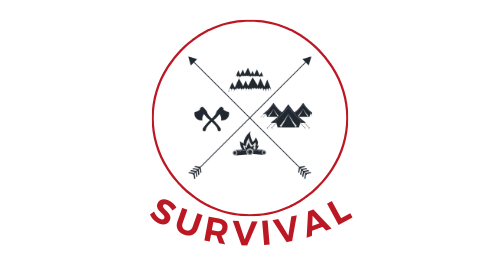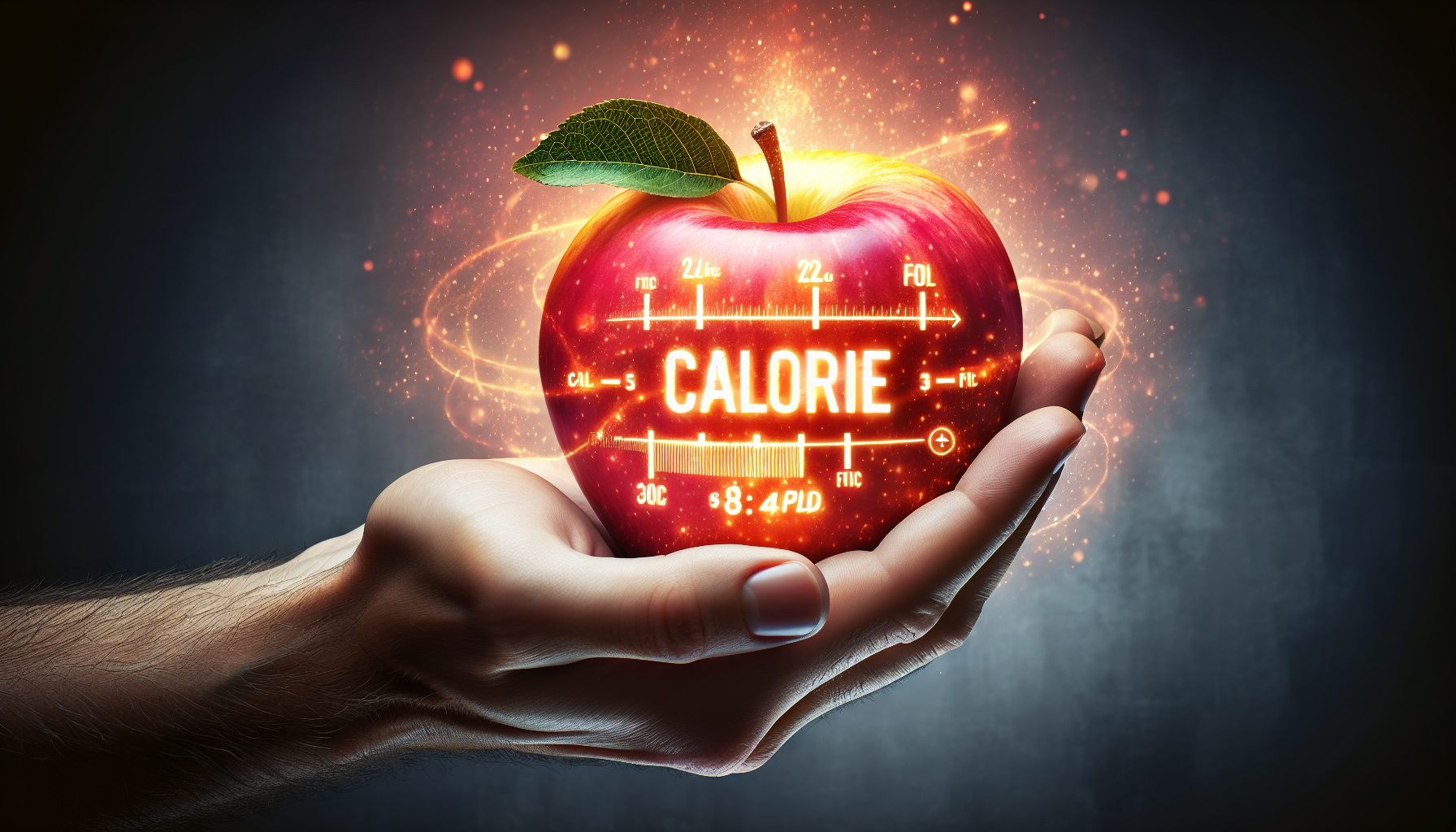In order to fully grasp the concept of survival, one must understand the crucial role that caloric intake plays in our ability to endure and thrive in challenging circumstances. This article sheds light on the significance of maintaining a proper balance of calories, highlighting the various factors that contribute to the overall effectiveness of our body’s energy consumption. Exploring the potential consequences of both excess and inadequate caloric intake, this piece aims to emphasize the vital link between sustenance and survival.

Understanding Caloric Intake
Definition of caloric intake
Caloric intake refers to the total number of calories consumed through food and beverages in a given day. Calories are a unit of measurement used to quantify the amount of energy provided by food and are essential for the proper functioning of the human body.
Types of calories
Calories can be derived from different macronutrients: carbohydrates, proteins, and fats. Each gram of carbohydrates and proteins provides 4 calories, while fats provide 9 calories per gram. It is important to understand that not all calories are created equal, as the source of calories and the types of nutrients they provide can have varying effects on overall health and well-being.
Importance of caloric intake for survival
Caloric intake is crucial for survival as it provides the energy necessary for bodily functions such as breathing, digestion, and maintaining body temperature. Without adequate caloric intake, the body cannot perform these essential functions efficiently, leading to a decline in overall health and well-being. Additionally, caloric intake is necessary for physical activity, growth, and repair of tissues, and the proper functioning of the immune system.
Factors Influencing Caloric Intake
Age
Age plays a significant role in determining the caloric intake needed for survival. Infants and children have higher caloric needs due to their rapid growth and development. As individuals age, their caloric requirements decrease, as their energy expenditure tends to decrease and muscle mass decreases.
Gender
Gender also influences caloric intake requirements. On average, men tend to have higher basal metabolic rates (BMR) and therefore require more calories than women. This difference is primarily attributed to the differences in body composition, whereby men generally have more muscle mass than women.
Physical activity level
Physical activity level is a crucial factor in determining an individual’s caloric intake. Those who engage in regular physical activity require more calories to sustain their energy expenditure. This includes activities such as exercise, work, and everyday movement. Sedentary individuals, on the other hand, have lower energy requirements and should consume fewer calories to avoid weight gain.
Body composition
Body composition, particularly the ratio of muscle to fat, also influences caloric intake needs. Muscle tissue is metabolically active and requires more energy to maintain compared to fat tissue. Therefore, individuals with a higher proportion of muscle mass generally have higher caloric needs, even at rest, than those with higher proportions of body fat.
Calculating Caloric Intake
Basal Metabolic Rate (BMR)
Basal metabolic rate (BMR) is the number of calories your body needs to maintain basic bodily functions at rest. It accounts for approximately 60-75% of total calorie expenditure and is influenced by factors such as age, gender, height, and weight. BMR can be calculated using mathematical equations or measured through specialized equipment.
Physical activity factor
In addition to the calories needed for basic bodily functions, the physical activity factor accounts for the calories burned through physical activity. This factor takes into consideration the individual’s activity level, ranging from sedentary to highly active. Multiplying the BMR by the appropriate physical activity factor provides an estimate of the calories needed to maintain current weight.
Total Daily Energy Expenditure (TDEE)
Total daily energy expenditure (TDEE) represents the total number of calories an individual needs to maintain their weight while considering both basal metabolic rate and physical activity. It is calculated by summing the calories required for basic bodily functions with the calories expended through physical activity. To lose weight, individuals can create a calorie deficit by consuming fewer calories than their TDEE.
Consequences of Insufficient Caloric Intake
Malnourishment
Insufficient caloric intake can lead to malnourishment, a condition characterized by a lack of essential nutrients. Malnourishment can result in deficiencies in vitamins, minerals, and macronutrients, leading to impaired bodily functions and weakened overall health. Long-term malnourishment can have serious health consequences and increase the risk of various diseases.
Muscle wasting
Inadequate caloric intake can cause muscle wasting, also known as muscle atrophy. When the body does not receive enough energy from food, it breaks down muscle tissue to use as an energy source. This can lead to a decrease in muscle mass, strength, and overall physical performance.
Weakened immune system
Caloric intake plays a vital role in supporting the immune system. Insufficient calories can weaken the immune response, making individuals more susceptible to infections and diseases. A well-nourished body is better equipped to fight off pathogens and maintain optimal immune function.
Fatigue and loss of energy
When the body does not receive enough calories, it lacks the energy required to perform daily activities. This can result in fatigue, weakness, and a general loss of energy. Inadequate caloric intake can also affect cognitive function, leading to difficulties in concentration and decision-making.

The Link Between Caloric Intake and Weight Loss
Caloric deficit for weight loss
Weight loss occurs when the body is in a state of caloric deficit, meaning that it is burning more calories than it is consuming. To achieve weight loss, individuals generally need to reduce their caloric intake while maintaining a balanced diet. However, it is important to note that extreme caloric restriction can have negative health effects and should be approached with caution.
Balancing caloric intake and expenditure
To maintain a healthy weight, it is crucial to balance caloric intake with caloric expenditure. Regular physical activity can help increase the number of calories burned, particularly when combined with a well-rounded exercise routine. By tracking both food intake and physical activity, individuals can ensure they are maintaining an appropriate balance.
Importance of nutrient-dense foods
When aiming for weight loss, it is essential to prioritize nutrient-dense foods that provide the body with essential vitamins, minerals, and macronutrients. This ensures that the body receives adequate nourishment even when in a state of caloric deficit. Nutrient-dense foods include fruits, vegetables, whole grains, lean proteins, and healthy fats.
Maintaining Optimal Caloric Intake
Eating a balanced diet
Maintaining optimal caloric intake involves consuming a balanced diet that provides all the necessary nutrients for health and well-being. A balanced diet includes a variety of foods from different food groups, including fruits, vegetables, whole grains, lean proteins, and healthy fats. It is important to avoid overly restrictive diets that may exclude important food groups.
Focusing on nutrient-dense foods
To ensure optimal caloric intake, it is beneficial to focus on nutrient-dense foods that provide a high nutritional value for the number of calories consumed. These foods are rich in vitamins, minerals, and other essential nutrients, contributing to overall health and well-being. Examples of nutrient-dense foods include leafy greens, fish, nuts, seeds, and legumes.
Avoiding extreme diets
Extreme diets that severely restrict caloric intake or eliminate entire food groups can have detrimental effects on overall health and well-being. While these diets may lead to short-term weight loss, they are generally not sustainable and can result in nutrient deficiencies and metabolic imbalances. It is important to choose a well-rounded approach to maintaining optimal caloric intake instead.
Ensuring Sufficient Caloric Intake in Emergency Situations
Stockpiling food supplies
In emergency situations where access to food is limited, it is crucial to stockpile food supplies to ensure sufficient caloric intake. This can include non-perishable items such as canned goods, dried fruits, nuts, and nut butter. Consideration should be given to the shelf life and nutritional content of the food items being stored.
Choosing long-lasting and calorie-dense foods
In emergency situations, it is essential to choose foods that are both long-lasting and calorie-dense. This ensures that individuals have access to a sufficient number of calories while minimizing the need for frequent resupply. Foods such as whole grains, nuts, seeds, and dehydrated meats provide a good balance of calories and essential nutrients.
Importance of rationing and portion control
During emergency situations, rationing and portion control become critical to ensuring sufficient caloric intake. Food supplies may need to last for an extended period, and individuals must carefully manage their portions to avoid running out of food prematurely. It is important to strike a balance between meeting caloric needs and avoiding wastage.
The Role of Caloric Intake in Survival Training
Understanding energy requirements during survival situations
Survival training involves preparing individuals for situations where access to food is limited, emphasizing the importance of understanding energy requirements. Knowing how many calories are needed for various activities and circumstances helps individuals make informed decisions regarding food consumption and rationing during survival situations.
Developing necessary skills for sourcing and preparing food
Caloric intake becomes particularly crucial during survival situations where individuals may need to source and prepare their own food. Survival training often includes learning skills such as hunting, fishing, foraging, and basic food preparation techniques. These skills are essential for obtaining sufficient calories and ensuring proper nutrition during challenging circumstances.
The Psychological Impact of Caloric Intake in Survival
Mental clarity and focus
Sufficient caloric intake plays a crucial role in maintaining mental clarity and focus during survival situations. Inadequate caloric intake can lead to cognitive impairments, making it more challenging to think clearly and make sound decisions. Proper nutrition helps support optimal brain function, enhancing mental acuity and problem-solving abilities.
Enhanced resilience and decision-making
Adequate caloric intake contributes to enhanced resilience and decision-making abilities during survival situations. When the body has enough energy from food, individuals are better equipped to handle physical and mental stress, improving their overall ability to adapt and make effective decisions in challenging circumstances.
Maintaining morale and motivation
Caloric intake can significantly impact an individual’s morale and motivation during survival situations. When food is in limited supply, ensuring that the body receives enough energy can help boost mood and overall morale. The act of consuming food can provide a sense of comfort, contributing to increased motivation and a positive mindset.
Seeking Professional Guidance for Optimal Caloric Intake
Consulting with a registered dietitian
To ensure optimal caloric intake for individual needs, it is advisable to consult with a registered dietitian. They can provide personalized advice based on factors such as age, gender, physical activity level, and health conditions. Registered dietitians can help create balanced meal plans and offer guidance on maintaining a healthy caloric intake.
Tailoring caloric intake to individual needs
Every individual has unique caloric intake requirements based on various factors. A registered dietitian can help assess these factors and tailor caloric intake recommendations specific to individual needs. This ensures that the body receives the right amount of calories to support overall health and well-being.
Monitoring and adjusting intake as necessary
Caloric intake needs may vary over time due to changes in weight, physical activity level, and overall health status. It is important to monitor caloric intake regularly and make adjustments as necessary. Consulting with a registered dietitian can help ensure that caloric intake remains appropriate and aligned with individual needs.
In conclusion, understanding caloric intake is crucial for survival, as it provides the energy needed for bodily functions, growth, repair, and overall well-being. Factors such as age, gender, physical activity level, and body composition influence caloric intake requirements. Calculating caloric intake involves determining basal metabolic rate (BMR), considering physical activity levels, and calculating total daily energy expenditure (TDEE). Insufficient caloric intake can lead to consequences such as malnourishment, muscle wasting, weakened immune system, and fatigue. Maintaining optimal caloric intake involves eating a balanced diet, focusing on nutrient-dense foods, and avoiding extreme diets. In emergency situations, ensuring sufficient caloric intake involves stockpiling food supplies, choosing long-lasting and calorie-dense foods, and practicing rationing and portion control. Caloric intake plays a crucial role in survival training, psychological well-being, and seeking professional guidance helps tailor caloric intake to individual needs. Ultimately, maintaining an optimal caloric intake is essential for overall health, vitality, and survival.

